To argan or not to argan...
Argan oil is undoubtedly an amazing oil, but is it really as amazing as the world makes it out to be?
Read on to find out why we think you shouldn't buy argan oil.
[lepopup slug='optin-natural-knowledge']Recommended natural products for skin, hair and body
Vegetable oils
Mineral Clay
Flower water
Mineral Clay
Vegetable oils
Beard oils
Natural Raw Materials
Vegetable oils
1. statement
Argan oil is not the only wonder oil
Statement: Argan is the only oil you need
If you're already familiar with other oils, you'll also realise that argan oil is definitely not the only pure oil that contributes beneficial properties for skin and hair.
Looking around on various websites, in shops and even in the supermarket, it's easy to be tempted to believe that argan oil is the wonder drug, as it's found in almost everything.
While argan is definitely a great oil, it's by no means the only one and if you haven't done yourself the favour of trying others, now is the time. Because you might get a whole new favourite oil by the end of the week.
So our first false statement about argan must be:
While argan oil is an amazing oil, it's not as amazing as the world would like to tell you it is.
There are a multitude of other oils and each one is unique. You owe it to yourself to try just a few of these. Some are best for your body, some are best for your hair, some are better for your face and some are great for your feet. The great thing about vegetable oils is that the oil that's best for your friend's face isn't necessarily the best for yours. It's just as much about your skin as it is your taste, Which oilsthat will become your new favourites.
Plot no. 1
Argan oil is not the only one natural oilwhich has a lot of good nutrition and is good for your hair and skin. There are many other good oils to choose from.
Can't keep your hands off argan oil?
So get your junk here:
Vegetable oils
A whole new world of exciting oils
The world is full of delicious oils that you can use for your skin, hair and body. We're proud of all the wonderful oils we have to offer you here, even if it's just a fraction of all the great oils out there.
The great thing about vegetable oils like natural cosmetics is precisely their versatility. The fact that they nourish the skin and hair, give shine, strength and revitalise cells is just an added bonus. Many of the oils also help to relieve pain, heal wounds, reduce and eliminate acne, psoriasis, rosacea and many other skin problems and conditions.
So who doesn't want to love vegetable oilsas pure and natural as they are?
You probably already know quite a few.

2nd statement
It's not enough to just say argan on the bottle
Statement: As long as the product contains argan, you are home safe...
Many people suffer from very oily skin and argan oil can help prevent the skin from overproducing sebum.
You need to treat it with oil. It may sound silly, but it's actually true.
It's similar to removing motor oil with a different type of oil. It also works fantastically well.
Similarly, you actually need to get rid of the facial skin's natural oil by using an oil that helps maintain the balance of the oil on your face. Argan oil helps you do just that.
But therein lies the problem. Many people say that as long as there is argan in the product, it's good.
Argan oil has been a major trend for a long time. Unfortunately, the industry has also capitalised on this by releasing many different products containing only argan oil.
If you don't look at the bottle and check the ingredients list, you'll come home with the idea that you've just got your hands on an amazing argan product.
Of course, there are also excellent mixing products, but it's mainly water you're paying for.
There are a lot of products that loudly and proudly advertise that they are argan products. Unfortunately, they don't tell you that the argan content is only around 3%.
Many manufacturers put ARGAN at the top of the bottle, but if you go through the ingredient list, you will often find that the content "argania spinosa" is at the end, and in this industry, the rules are that the content that is most abundant in a given product must be listed first and so on. Often the most abundant ingredient in these types of products is water.
Plot no. 2
You can't judge your argan oil by the front of the bottle. If you're on the hunt for 100% pure argan oil, always look for ingredient list. If it says anything other than argania spinosa, you should find another (with the exception of any extra added vitamin e - tocopherol).
Mixing products
A product that contains anywhere near 80% of water can in no way be compared to a 100% pure argan oil. Therefore, you can't just rely on the front of the label to tell you the full truth. When shopping for argan, look at the list of ingredients. Here, argania spinosa, which is the botanical name for argan, should be listed as the only ingredient if the oil is completely pure. If it is listed together with other ingredients, it is a blended product and you should pay attention to how far down the list argan is listed. The more ingredients listed earlier, the less argan there is in the product.
There are also many blended products that don't necessarily consist of bad chemistry, but simply other cheaper oils. Many manufacturers make "Argan oil" that contains other vegetable oils. Here, the ingredient list may well turn out to consist of pure products. But again, if you get 70% cheap almond oil and 30% argan, do you want to pay full price?
3rd statement
Argan doesn't solve all the world's problems
Statement: Argan oil solves XXX (insert skin problem)
Vegetable oils - including argan - are known for their many nourishing and strengthening properties. Also the ability to heal, soothe and cure various skin problems, such as eczema, acne, psoriasis, rosacea and other skin diseases.
Unfortunately, many manufacturers, especially those behind argan, try to sell the idea that the oil can solve all problems - whatever they may be.
It's true that argan is good for hair and skin and can help alleviate some cases of dandruff and acne rashes, but that doesn't mean it can necessarily solve every conceivable skin problem. It can sometimes feel like that's the case.
Unfortunately, that's not true.
Argan oil is a great oil for general skin and hair care and can also be good for mild cases of acne, eczema, wrinkles, dandruff and preventing stretch marksbut then it doesn't last much longer either.
There are no vegetable oils that with warranty can solve - and thus heal and cure - various skin problems and skin diseases. On the other hand, there are many oils that are very likely, at the very least, to help minimise and alleviate many cases of skin problems.
Argan can be used to treat many of these cases, but it is possible that there is another oil that is more likely to work more effectively on individual irritations.
Luckily, oils are not all the same and work well for many things, but some oils are better for certain things. That's just the way it is.
Plot no. 3
You should not Buy Everything you hear. Argan oil can do many good things for your skin and hair, but it can't do everything. All of our oils combined can help you with a lot of skin problemsbut they can in no way guarantee a cure for any skin condition. In that case, we would have been able to go on holiday from now until Christmas in the year 5050 :)
Argan oil is not always the best choice
There is no doubt that argan oil is good and effective for skin and hair care. If you're already familiar with the oil and love it, there's no need to be alarmed by this article. It will come as no surprise to you.
You already know what argan is good for and won't be fooled by the industry trying to spin gold unattainable postulates. Because as much as we love argan oil, we just thought we'd take it off its pedestal a little - because, dear industry, it's only and oil.
Shop other delicious oils hereWhat do you say, have you experienced some unbelievable claims regarding the unique properties of argan oil?





















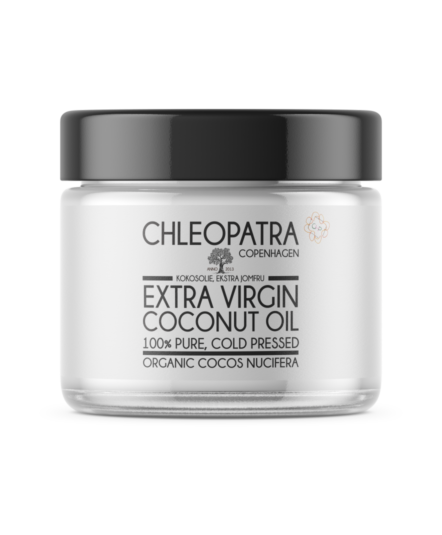



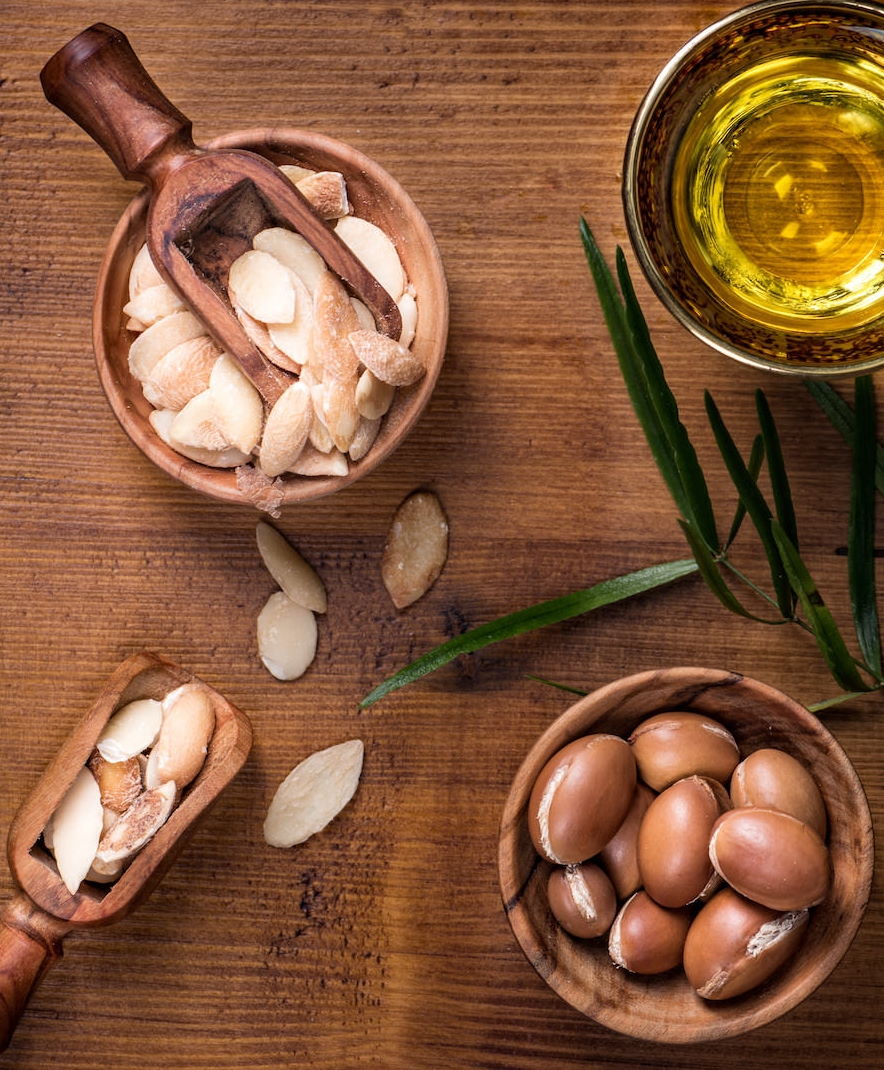



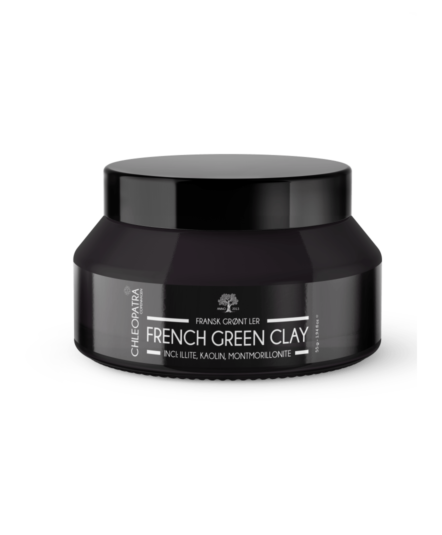
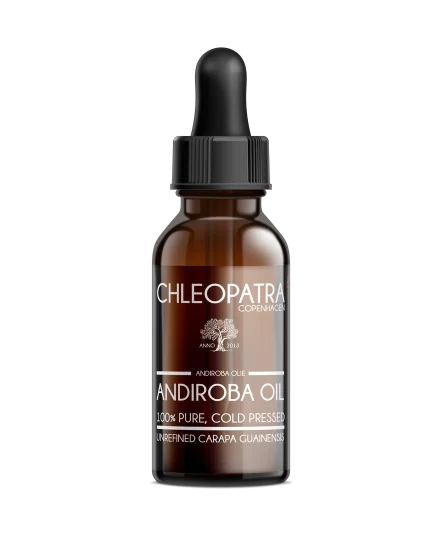



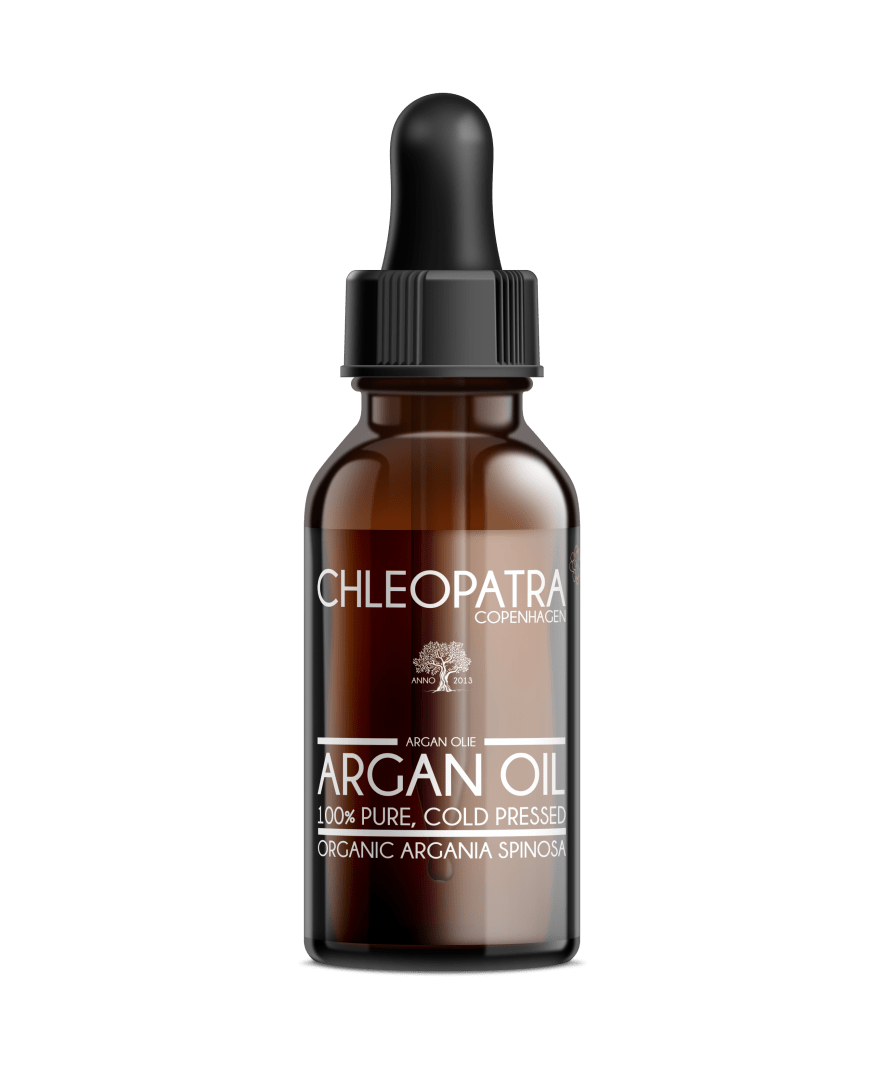
Recommended natural products for skin, hair and body
Vegetable oils
Organic Raspberry Seed Oil 30ml - Chleopatra
Essential Oils
Organic Orange Oil 10 ml Essential Oil - Chleopatra
Natural Raw Materials
Dried Rose Petals 25g
Essential Oils
Organic Bergamot Oil FCF 10 ml Essential Oil - Chleopatra
Vegetable oils
Cold Pressed Apple Seed Oil 30ml - Chleopatra
Natural Raw Materials
Castile soap
Natural Raw Materials
Organic Aloe Vera Juice 100ml Concentrated - Chleopatra
Vegetable oils
Organic Tamanu Oil 30ml - Chleopatra